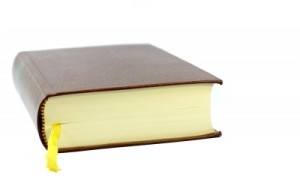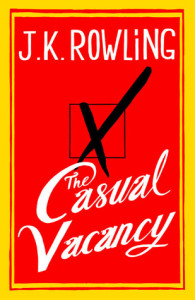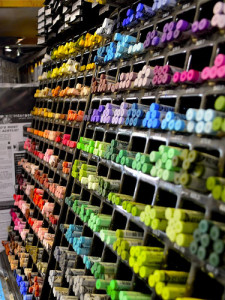
Listen to my words! CC image “Stratford Upon Avon” courtesy of Jig O’Dance on Flickr. Some rights reserved.
A couple of months ago, at Voice & Speech class, I asked about a tricky thing regarding my first speech as a Toastmaster: The Icebreaker Speech.
I was trying to figure out how to balance the need to practice my speech and know it well, with the desire to maintain spontaneity and engagement, and fluidity while I was presenting it — in other words, I wanted it to sound effortless, but not rehearsed.
My teacher pointed out that that was very much acting… what an actor would do. She encouraged me to keep the following in mind in working with this situation:
At first read-through, we know a piece pretty well. As we continue to memorize it, she said, we all go through a patch of badness, where we just tank. She referenced the experience of voice-over artists, who usually hit badness when they’re asked to do too many takes of the same piece. There is a line where repetition becomes too much… but, she insisted, if we persist through the badness and continue working with the material, we will come out the other side, knowing the text much better and having left the badness behind.
So, number one, persist through the badness.
On a mechanical level, for practice, my teacher suggested breaking down the speech by taking the whole thing, if I’d written the presentation out in full sentences, and:
- breaking the sentences into phrases
- breaking the phrases down into bullets
Then practicing the speech using the bullets only. As a species of mile marker. Until (theoretically) I could discard the bullets (I haven’t gotten that comfortable yet).
We all think that we speak in full sentences, she said, but in fact, no one does. We speak in chunks.
Linguists call this “lexical chunking” and you can read an interesting article about it here. (If you’re a real linguistic nerd, like me, you might enjoy the video discussion between McWhorter and Zimmer, here.) Lexical chunking has become a big part of the discussion in language learning and teaching, because harnessing the way our brains naturally process language should provide advantages over memorizing vocabulary lists (remember that, anyone? those pop quizzes were the best).
A lot of what the casually interested reader can find when googling “lexical chunks” pertains to language learning, specifically learning English as a second language. This deals mostly with spoken language. A lot of the rest of what the reader will find has to do with reading, or processing written language. We don’t read word for word, either. In both cases the argument is that “chunking” enhances the ease of our understanding. The theoretical underpinning to this argument rests on the role and limitations of short-term memory. At its most basic: we don’t have much room in short-term memory, so multi-word language units that come as a prepackaged whole mean less work for the brain.
Hooray, less work! As far as my speech was concerned, chunking should provide advantages both for me, who was trying to remember everything I wanted to say, as well as for my audience, who I hoped would understand and remember my speech!
The other good news about my Toastmasters presentations is that I have leeway with my choice of words. Unlike actors working with a script, I don’t have to hit the same exact lines every time, as long as I keep the sense of the talk where it should be. Instead, I can focus on persisting through the badness, keeping my eyes on the mile markers.
Language chunks at work.
=====
What are your tricks for remembering what you want to say? Does writing your ideas down hurt or help you?






